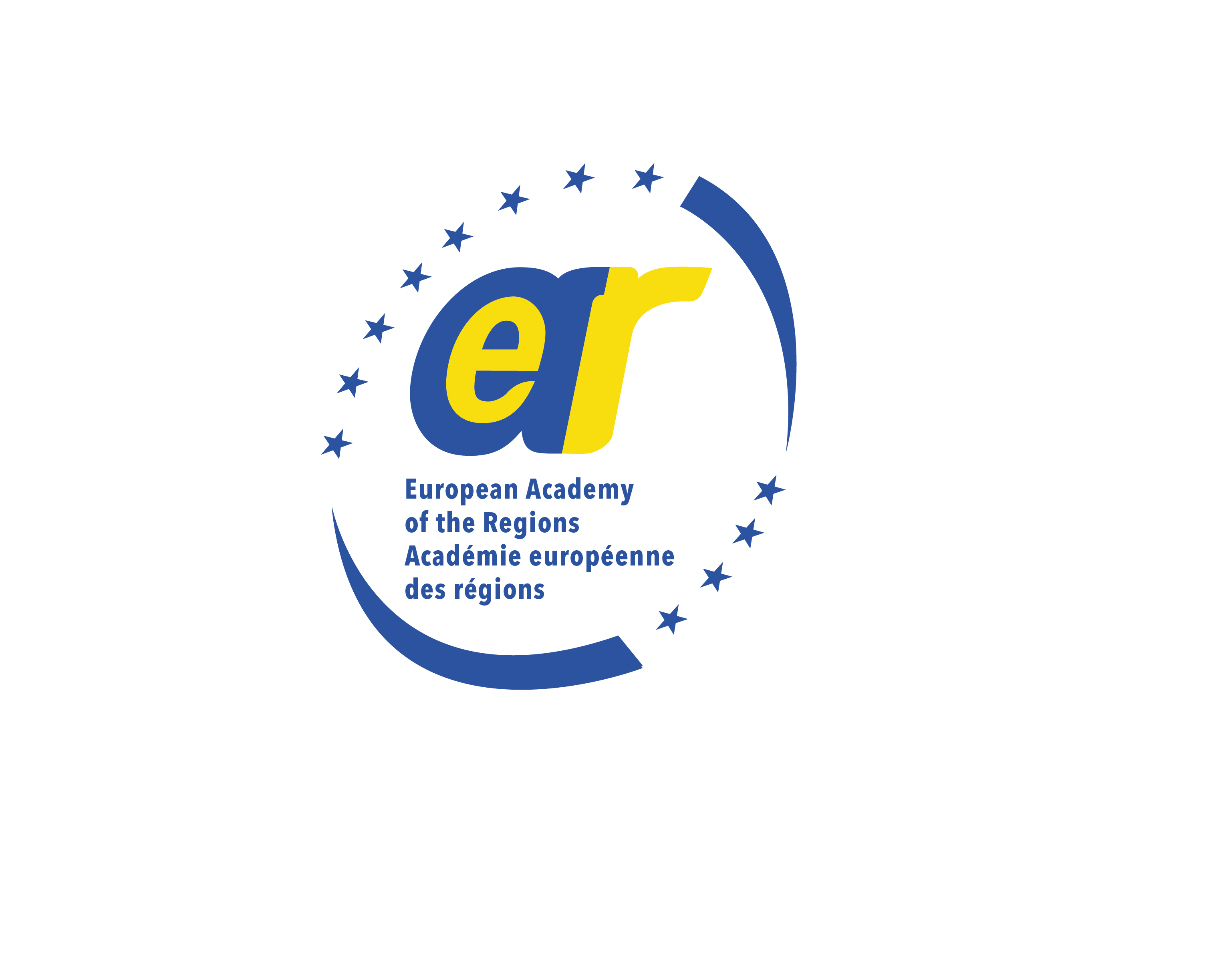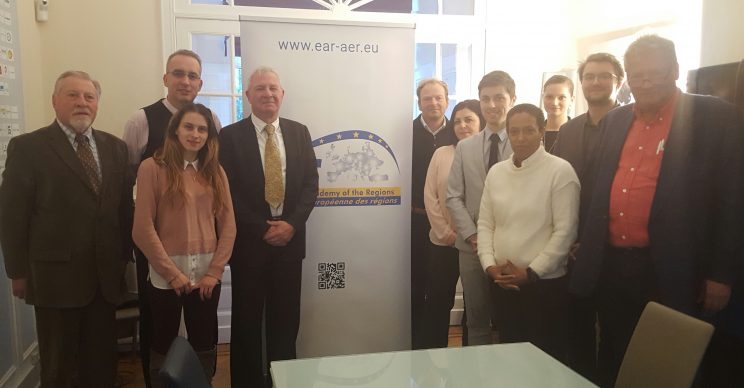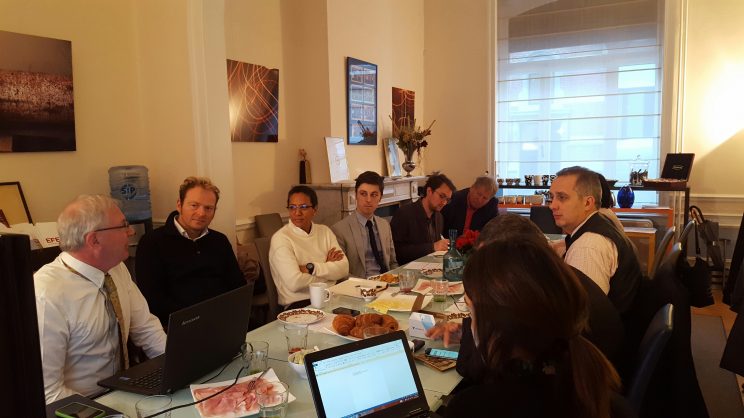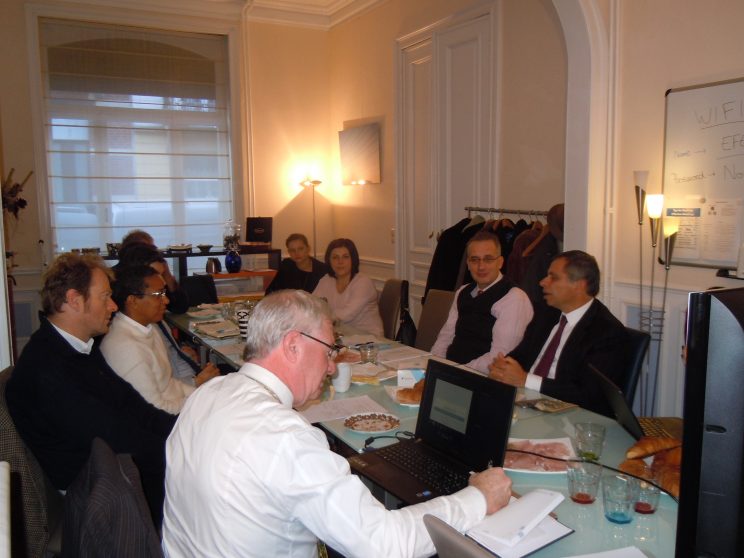During the 6th debate“Coffee of Regions”- The Regional Approach: Which subjects can benefit of it? held on Tuesday 30th of November 2016, EAR-AER confronted the opinions of various participants about the importance of a regional approach to (re)dynamise economies and social cohesions in the regions of Europe.
During his introduction, Mr. Louis Delcart, EAR-AER head of the Regional Development department, indicated the key success factors of the regional approach for social and economic development: resilience, community building, transformation & innovation, and entrepreneurship.
He drew conclusions from several fact-finding missions EAR-AER had carried out during the past months in various European countries as: Romania, Albania and Norway. The proposed principles could only be successful if a competent and empowered regional and/or local authority was in place and ready to co-operate with competent and committed regional society organisations such as chambers of commerce, labour and employer’s organisations, cultural and health care organisations, and the media.
Mr. Henri Malosse, EAR-AER honorary member, former president of the European Economic and Social Committee, gave his appreciated comments on the conclusions drawn by the speaker.
He agreed with the presented approach but pleaded for a strong exchange of experiences between the existing successful regions on a supra-national level.
He indicated that regions with a historical background have a strong sense of identity and of their own culture and constitute therefore the backbone of innovative social and economic initiatives throughout Europe. They are eager to share their experiences with each other and with less motivated regions.
It is Mr. Malosse’s opinion that the links between these regions are much stronger than the ones of the nation states. On the other hand, he also admitted that this way of collaboration could not be institutionalized inside Europe by creating e.g. a European Senate with members of the various regions. Regions have topics to treat and solutions to work out that are specific for each of them and that can hardly be extrapolated into a national or international policy.
Mr. Malosse went further than the introducing speaker by putting question tags on the role of nation states and by pleading for a supranational approach on European level for an array of domains such as security, defence, foreign affairs, environmental issues, social security etc.
Dr. Stephen Ressl, newly appointed EAR-AER’s co-head Energy department, emphasized in his reply on 3 elements. The first was the presence of the internet enabling regional and local players in the social, economic, and political context to exchange ideas and processes in a very dynamic way and for start-ups to find kindred spirits they can communicate with. The second point is the practical life that should be considered and that can be tackled much easier and more efficiently in a regional context than in a national one. His third point was that the statistical system the EU has put in place, is not adequate to detect successes and backlogs on regional level.
The attendees from various other regions such as East-Bohemia and South-Bohemia, Guadeloupe, Transylvania, Flanders, Wallonia, Armenia, Lower Austria, and Bavaria expressed their willingness to use the supplied arguments in a search for the dynamization of their regions.



